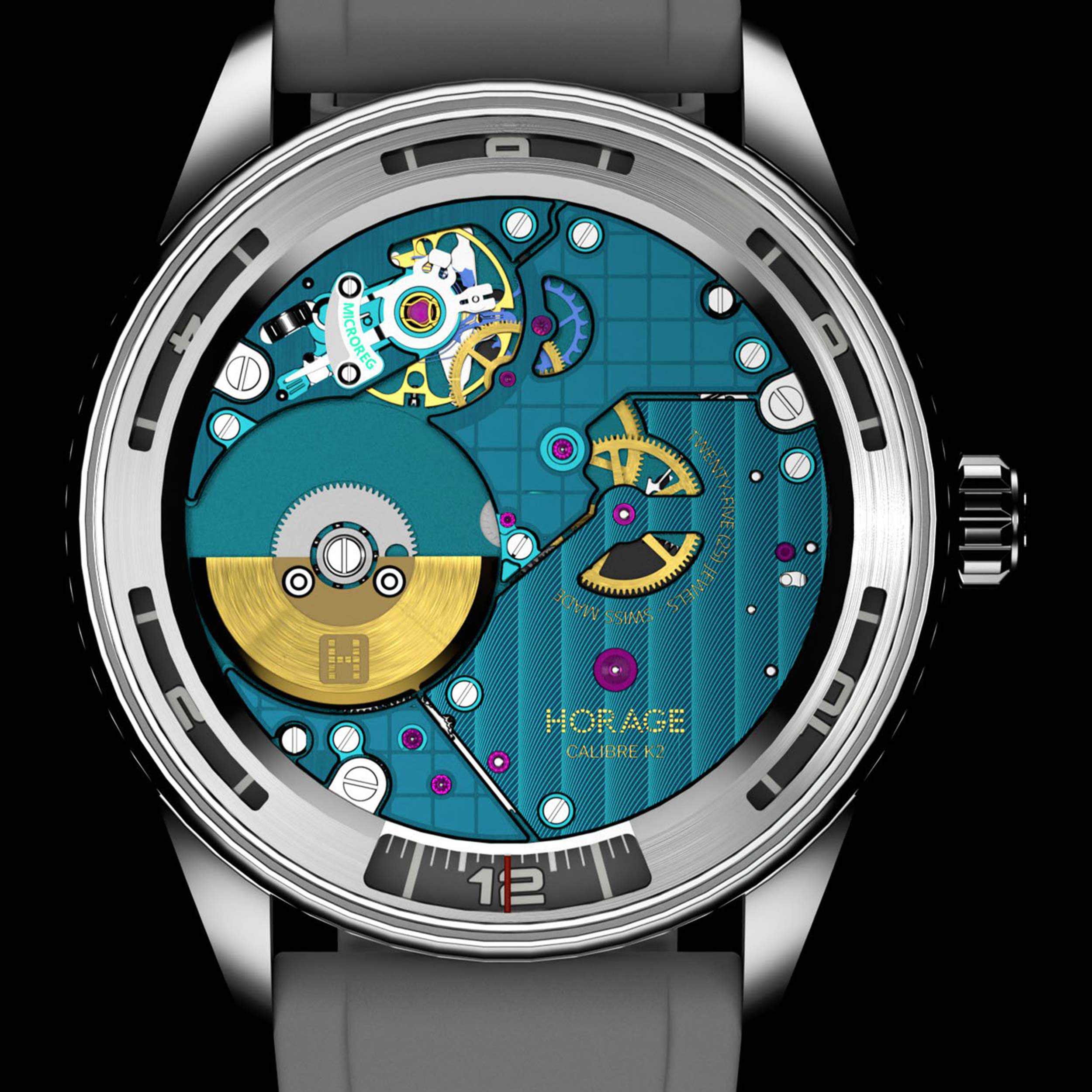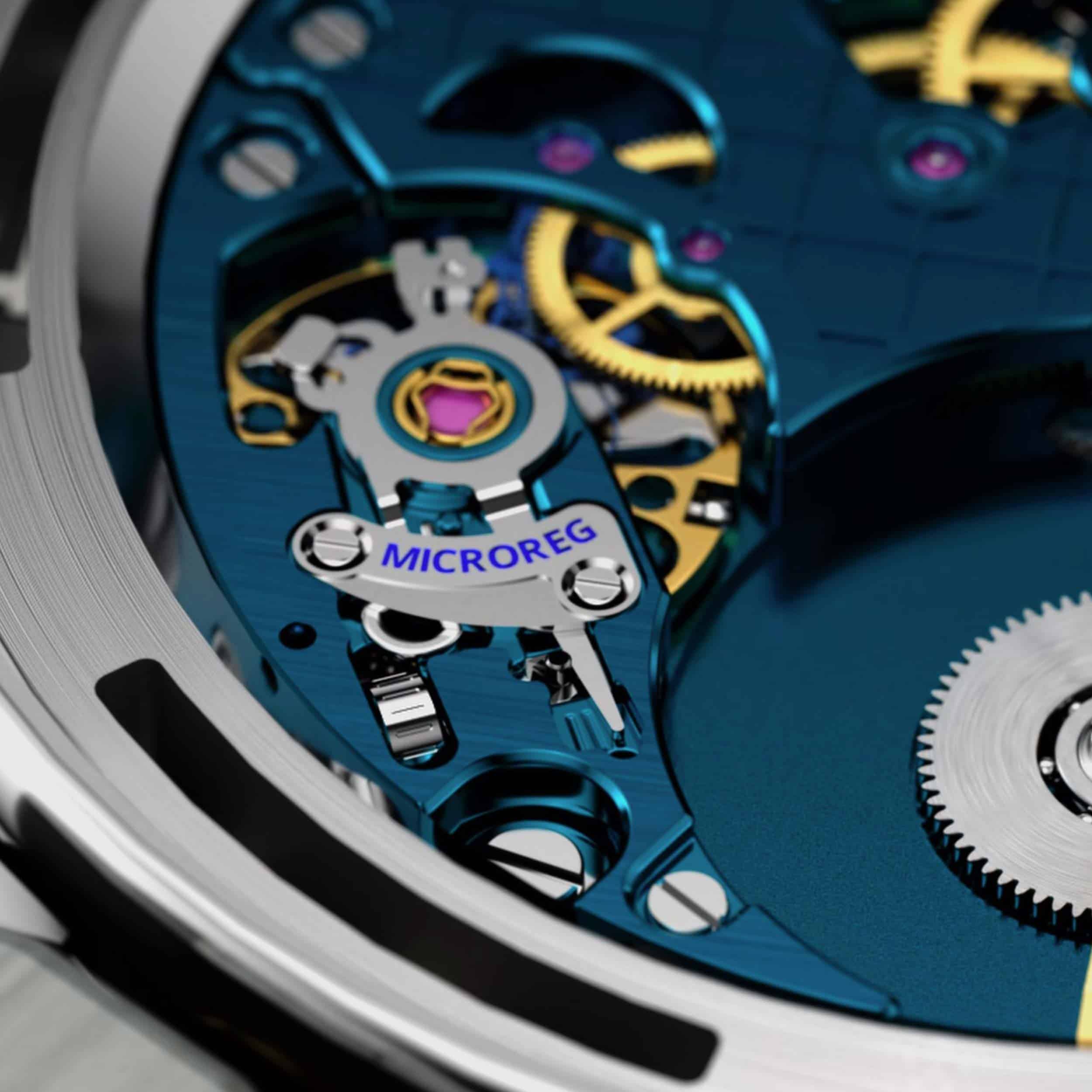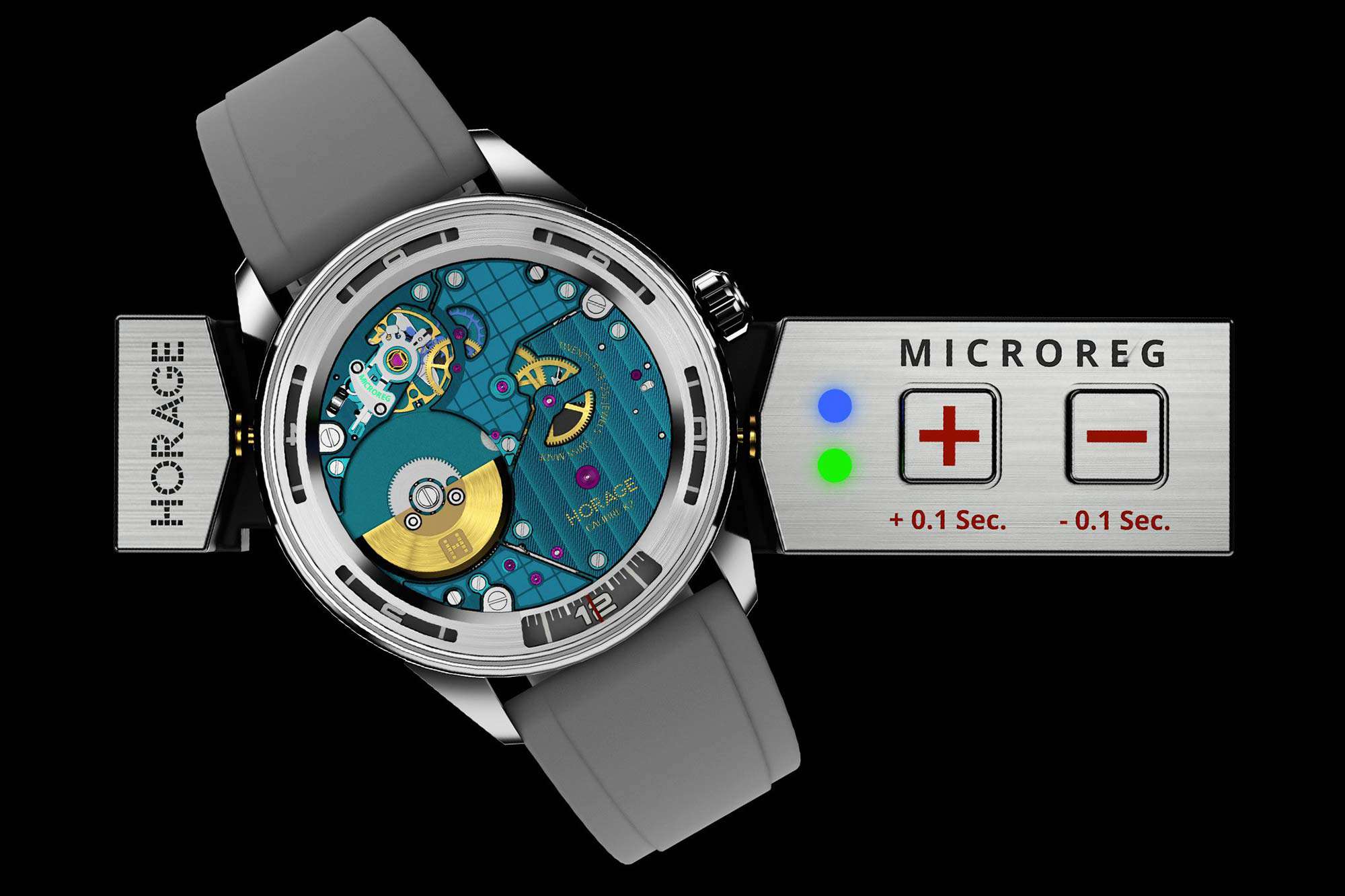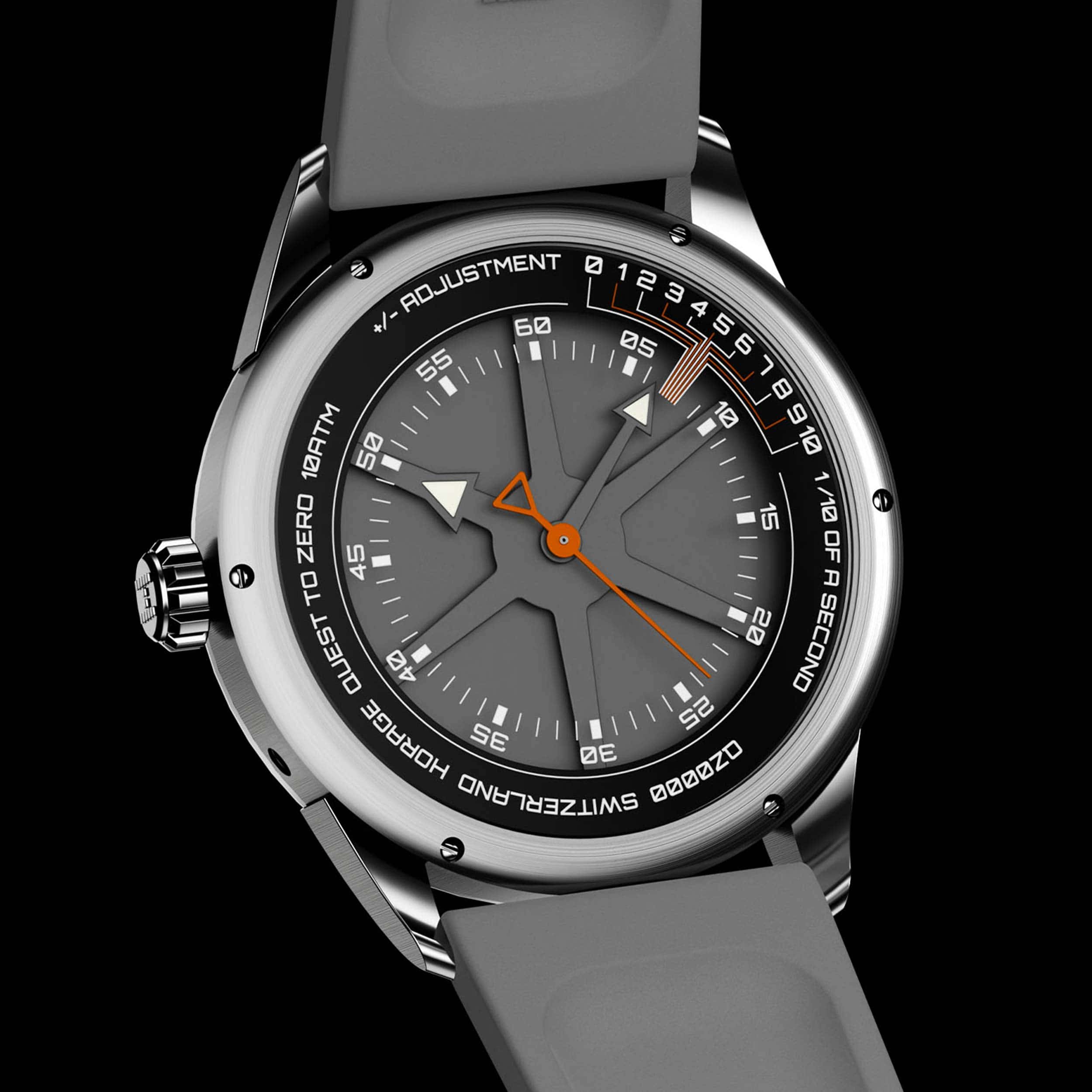Okay, I admit it. I don’t really care about my watches’ accuracy. Don’t get me wrong, I want my watches to be relatively accurate — and I certainly want them to be in spec — but I want the watchmakers to care about that so I don’t have to. At the end of the day, I just can’t bring myself to care all that much about a couple of seconds over the course of a day. After all, what’s 10 or 15 seconds held up against 86,400? The world doesn’t really operate on that sort of accuracy, and my day-to-day writing about watches certainly doesn’t demand it.
That said, while I may not care all that much about accuracy in the abstract, I love it when brands pursue accuracy. I’m a sucker for a clever escapement, a new technique, or a wild swing, and beyond all that, I love the creativity that the pursuit of accuracy tends to elicit. So when Horage announced the Revolution 3 Microreg last week, it certainly caught my eye.
The standout feature of the Horage Revolution 3 Microreg, which was made using technology developed by Swiss engineering firm Miniswys, is the ability to regulate the watch at home using a miniature electric motor connected to the escapement’s regulator and controlled by an external dock which allows adjustment in increments as low as 0.1 seconds. Pair this with what is already a COSC-certified movement and what you get is the potential for a remarkably accurate watch that bridges the gap between, as Horage puts it, regulation and reality.
One of the biggest challenges for watch brands with a focus on accuracy is that they have no real ability to prepare a watch for the life it will lead once it leaves the workshop. So brands focus primarily on static accuracy, measuring a movement’s accuracy in multiple positions, often before putting it into the watch. There are obvious exceptions to this — METAS certification in particular springs to mind — but for the most part, COSC-certified watches aren’t put to any real-world tests. The Revolution 3 Microreg is the first genuine at-home solution to this challenge I’ve encountered and I admit, I’m intrigued.
Of course, none of this means anything if the watch isn’t any good. Thankfully, Horage has produced a watch that should capture the attention of the same sort of tech-forward watch enthusiast an at-home regulator might. The big visual stamp of the watch is its inverted design, which gives the Peacock Blue finished K2 micro-rotor movement pride of place. It’s a handsome movement, with a gold-plated tungsten micro-rotor, and boasts a handful of finishing techniques. In large part thanks to its color, it reminds me of the visible movement in Accutron watches, which — given the tech-forward nature of this watch — feels appropriate.
While the Revolution 3 Microreg does offer a fairly traditional time display on the caseback, along with a visual representation of any adjustments made, the watch shows the time on the front using an “hour and minute” disc. The disc peeks through the dial around the perimeter of the watch and is read through an aperture at the traditional 6 o’clock position. Personally, I really love the look of the caseback dial and would love to see that take center stage at some point, but this execution feels like the right one for the debut appearance of the Microreg.
The Horage Revolution 3 Microreg is reasonably sized, at 41mm across, 48.22mm lug-to-lug, and a pleasantly thin 10.05mm thick case. The lug width is a proportional 22mm, and the Revolution 3 Microreg comes on a gray FKM rubber strap equipped with a stainless steel pin buckle.
The Horage Revolution 3 Microreg is available to pre-order now for 3,900 CHF (a discount on the eventual sale price of 6,900 CHF). For those intrigued by the technology, but not quite ready to pull the trigger on the watch, a “Microreg Founder Supporter” package is also available, which offers customers a chance to buy a 300 CHF voucher for just 150 CHF. Horage









